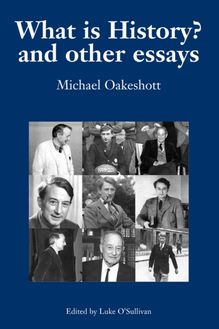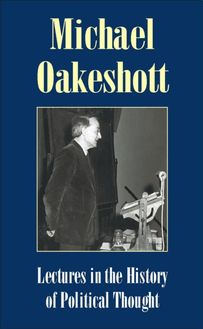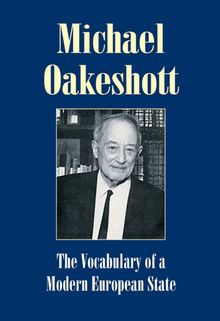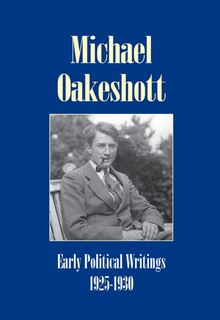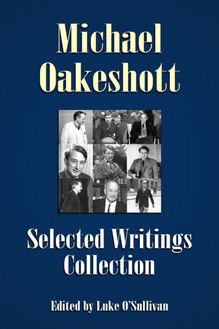-
 Univers
Univers
-
 Ebooks
Ebooks
-
 Livres audio
Livres audio
-
 Presse
Presse
-
 Podcasts
Podcasts
-
 BD
BD
-
 Documents
Documents
-
- Cours
- Révisions
- Ressources pédagogiques
- Sciences de l’éducation
- Manuels scolaires
- Langues
- Travaux de classe
- Annales de BEP
- Etudes supérieures
- Maternelle et primaire
- Fiches de lecture
- Orientation scolaire
- Méthodologie
- Corrigés de devoir
- Annales d’examens et concours
- Annales du bac
- Annales du brevet
- Rapports de stage
La lecture à portée de main
Vous pourrez modifier la taille du texte de cet ouvrage
Découvre YouScribe en t'inscrivant gratuitement
Je m'inscrisDécouvre YouScribe en t'inscrivant gratuitement
Je m'inscrisEn savoir plus
Vous pourrez modifier la taille du texte de cet ouvrage
En savoir plus

Description
Sujets
Informations
| Publié par | Andrews UK |
| Date de parution | 31 octobre 2011 |
| Nombre de lectures | 0 |
| EAN13 | 9781845403263 |
| Langue | English |
Informations légales : prix de location à la page 0,0000€. Cette information est donnée uniquement à titre indicatif conformément à la législation en vigueur.
Extrait
Title Page
EARLY POLITICAL WRITINGS 1925–30
Michael Oakeshott
Edited by Luke O’Sullivan
Publisher Information
This collection copyright © Imprint Academic, 2010
The moral rights of the author have been asserted
No part of any contribution may be reproduced in any form without permission, except for the quotation of brief passages in criticism and discussion.
Originally published in the UK by Imprint Academic
PO Box 200, Exeter EX5 5YX, UK
Originally published in the USA by Imprint Academic
Philosophy Documentation Center
PO Box 7147, Charlottesville, VA 22906-7147, USA
Digital version converted and published in 2011 by
Andrews UK Limited
www.andrewsuk.com
Preface
The fifth volume in the Selected Writings series returns to the Oakeshott archive at the British Library of Political and Economic Science (BLPES). Unlike the third and fourth volumes, which anthologised Oakeshott’s widely scattered previously published essays and reviews, it consists entirely of previously unpublished work. It is also the first volume to concentrate exclusively on the first decade of his early career.
Specifically, it makes widely available for the first time a Fellowship dissertation from 1925, as well as the first version of a series of lectures Oakeshott gave between 1928 and 1930. The 1925 ms has been circulating informally for some years, and is strikingly different in style and content to anything he wrote later on. Yet it is an important work, because it was his first attempt at a systematic presentation of his ideas, and was more explicit about his sources than anything else he ever wrote.
Moreover, when the 1925 ms is placed together with the lectures which represent the state of Oakeshott’s thought in the later 1920s and early 1930s, they allow us to understand more clearly than ever before the development of his ideas in this crucial and still under-explored first phase of his intellectual career. The lectures in particular, as the introduction will make clear, form an important bridge towards Experience and its Modes .
As is now customary, I am very happy to thank Imprint Academic, publishers of the Selected Writings , for their support. This was the first volume of the Selected Writings to be prepared almost entirely at the Political Science Department of the National University of Singapore, and I would like to acknowledge the generous funding which made possible a visit to the British Library and the London School of Economics in June and July of 2010 in order to finish off the research. I would also like to record my gratitude to Professor Terry Nardin for his comments on a draft of the editorial introduction.
The greater part of the work of turning typescript and manuscript into electronic text fell once more upon my wife Olga, but as usual, responsibility for the errors the volume doubtless contains rests entirely with the editor.
Singapore, 2010
Editorial Introduction
I: The Early Oakeshott and Political Philosophy
Michael Oakeshott (1901–90) made his reputation as a political philosopher, but for a long time students of his work assumed that he had little interest in politics before 1945. His major pre-war work, Experience and its Modes (1933), an examination of the nature of philosophy and its relation to other forms of thought, made almost no mention of the subject. [1] However, it has become increasingly clear that this initial judgment was misleading. A posthumous collection of early essays, Religion, Politics, and the Moral Life (1993), proved that political philosophy was a lifelong concern. [2] Nevertheless, the belief that Oakeshott was relatively uninterested in politics, at least in the 1920s, has persisted. [3]
This volume dispels this notion for good. It contains two previously unpublished works, a manuscript entitled ‘A Discussion of Some Matters Preliminary to the Study of Political Philosophy’ (the 1925 ms), and a course of undergraduate lectures on ‘The Philosophical Approach to Politics’ written between 1928 and 1930 (the 1930 lectures). [4] Their titles alone establish that politics was a central concern in the first decade of Oakeshott’s intellectual career. Indeed, this introduction will show beyond any doubt that the ideas of Experience and its Modes actually grew out of Oakeshott’s prior philosophical interest in politics.
Moreover, the position Oakeshott had reached by 1930 explains why politics was virtually absent from Experience and its Modes . He concluded that political philosophy could never be true philosophy because of the inherently unsatisfactory nature of political activity itself. Thus, there was little point including politics in a work designed to present a model of authentic philosophy. Incidentally, this conclusion also explains the roots of the negative view of politics that he held between the wars, something often remarked upon but never satisfactorily explained.
Together, the 1925 ms and the 1930 lectures transform our knowledge of the first decade of Oakeshott’s intellectual development, bringing his mental horizons into sharp focus, allowing us to reconstruct the context of his early thought, and making the similarities and differences with his later work clearer than ever before. For instance, the nature and extent of his early commitment to philosophical Idealism can be more precisely evaluated, and also be shown decisively to be absent from his later work.
There are undeniably important continuities, as well as differences, between the early and the mature Oakeshott. He carried on asking many of the same questions throughout his career, but his approach to answering them changed radically, and even if he sometimes reached the same conclusions, his reasons for holding them were different. Hindsight makes clear that he moved towards an increasingly sceptical and minimalistic approach to political philosophy, and that he did so largely by way of self-criticism, gradually jettisoning more and more of his own early Idealist and Rationalist beliefs.
II: A Discussion of Some Matters Preliminary to the Study of Political Philosophy
The 1925 ms may have been written as part of Oakeshott’s successful Fellowship application to Gonville and Cauis College. [5] Notably dissatisfied with contemporary political philosophy, it enlarges on the theme of a previous essay, ‘The Cambridge School of Political Science’ (1924), which complained that the Cambridge syllabus of political science ‘entirely misses “the real thing”’ because it ‘occupies itself almost exclusively with the passing forms of government’. Consequently, political science as studied at Cambridge lacked a definition of politics. Worse still, one ‘never arrives’ at the true subject of political science, the study of the State. [6]
An important argument developed in the 1925 ms, about which Oakeshott never changed his mind, is that political thought is not all of the same kind. He owed this view at least partly to Bosanquet’s History of Aesthetic , in which works of art were classified into ‘three main heads. First, the works of art themselves … secondly … all writing about art the aim of which is either to improve it, give directions for the creation of works of art, or to describe individual productions; [and] thirdly, aesthetic theory, the aim of which is neither to describe, to improve or to direct, but simply to theorize’. [7]
Proposing that we can ‘approach other human experiences in the same way,’ Oakeshott concluded that the ‘vast literature of utopias and practical suggestions in government’ required separating from the ‘genuine literature of political philosophy’. Many problems in political philosophy, he believed, stemmed from a failure to observe the differences between ‘a serious theoretical treatment [of political thought and] the wildest scheme for the reform of the Franchise’. [8] While canonical works like Plato’s Republic or Rousseau’s Contrat Social admittedly had a dual character as ‘at once works of criticism and of theory’, Oakeshott interpreted their authors as deliberately employing more than one genre without confusing them. [9] In contrast, modern writers like Laski and Hobhouse failed to appreciate the distinction.
The 1925 ms was concerned with far more than questions of genre, however. Despite its self-proclaimed status as a propadeutic, it adopted an ambitious Idealistic and Rationalistic metaphysics. First, definition was argued to be the necessary culmination of all rational intellectual activity. Next, it proceeded to define politics, philosophy, the State, and the Self, or individual. Finally, it concluded (in the best traditions of Hegelian and British Idealism) that the State and the Self are mutually implicatory concepts united by the notion of a rational, general, will.
Plato, Aristotle, Spinoza, Rousseau, Hegel, Bosanquet, and Bradley are all deployed in support of this position, though Bosanquet’s presence perhaps looms largest. But the manuscript really only makes sense when read as a contribution to the debate then occurring in England between the British Idealists, who defended state sovereignty as the necessary outcome of a metaphysics of the rational will, on the one hand, and the so-called ‘pluralists’, on the other, who attacked sovereignty and its associated philosophy as a danger both to individual liberty and to associational freedom at large.
The pluralist theory of group personality (which the legal historian F.W. Maitland argued had received a kind of de facto recognition in English history under the law of trusts) seemed to offer a means of preserving the independence of non-state groups such as churches and trade unions against governmental interference. [10] If groups had personality, they also had rights against the state. The appeal of suc
-
 Univers
Univers
-
 Ebooks
Ebooks
-
 Livres audio
Livres audio
-
 Presse
Presse
-
 Podcasts
Podcasts
-
 BD
BD
-
 Documents
Documents
-
Jeunesse
-
Littérature
-
Ressources professionnelles
-
Santé et bien-être
-
Savoirs
-
Education
-
Loisirs et hobbies
-
Art, musique et cinéma
-
Actualité et débat de société
-
Jeunesse
-
Littérature
-
Ressources professionnelles
-
Santé et bien-être
-
Savoirs
-
Education
-
Loisirs et hobbies
-
Art, musique et cinéma
-
Actualité et débat de société
-
Actualités
-
Lifestyle
-
Presse jeunesse
-
Presse professionnelle
-
Pratique
-
Presse sportive
-
Presse internationale
-
Culture & Médias
-
Action et Aventures
-
Science-fiction et Fantasy
-
Société
-
Jeunesse
-
Littérature
-
Ressources professionnelles
-
Santé et bien-être
-
Savoirs
-
Education
-
Loisirs et hobbies
-
Art, musique et cinéma
-
Actualité et débat de société
- Cours
- Révisions
- Ressources pédagogiques
- Sciences de l’éducation
- Manuels scolaires
- Langues
- Travaux de classe
- Annales de BEP
- Etudes supérieures
- Maternelle et primaire
- Fiches de lecture
- Orientation scolaire
- Méthodologie
- Corrigés de devoir
- Annales d’examens et concours
- Annales du bac
- Annales du brevet
- Rapports de stage

